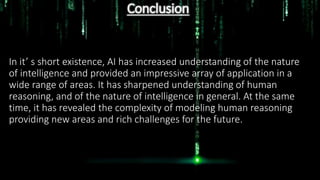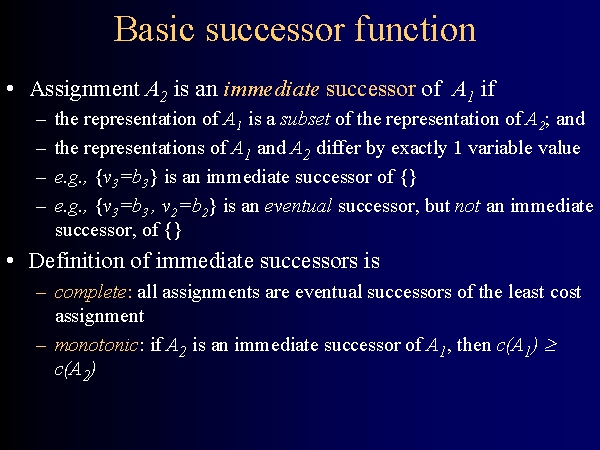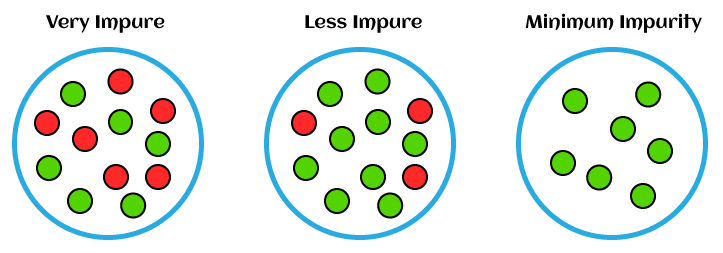Artificial Intelligence (AI) is a rapidly growing field that has revolutionized the way we live and work. With advancements in technology, AI has become a crucial element in various industries, including healthcare, finance, and transportation. The rise of AI has led to a surge in demand for professionals with advanced knowledge and skills in this field. Pursuing a Masters in Artificial Intelligence is an excellent way to position yourself as a highly sought-after expert in this field. But, is it worth it?
The answer is yes. A Masters in Artificial Intelligence is worth the investment of time, effort, and money. The demand for AI experts is increasing tremendously, and the job market is expected to grow exponentially in the coming years. With a degree in AI, you will be highly marketable and have a wide range of career opportunities available to you. In addition, the field of AI is constantly evolving, and a Master’s degree will provide you with the necessary skills to stay up-to-date with the latest technology and trends.
Masters in Artificial Intelligence can be a great way to advance your career and knowledge in the field. A Masters in Artificial Intelligence can build upon your existing knowledge and give you the expertise needed to enter the field. AI is an ever-evolving technology that requires individuals to constantly keep up to date with the newest developments. This program can provide you with the skills and knowledge necessary to be successful in the AI field.

Is A Master’s in Artificial Intelligence Worth It?
Pursuing a master’s degree in artificial intelligence (AI) is a major decision. AI is a rapidly growing field with a wide range of career opportunities, and a master’s degree can open up doors to new and exciting jobs. But before making the decision to pursue a master’s in AI, it’s important to consider the cost, the time commitment, and the potential career options.
The Cost of a Master’s in AI
Cost is often a major factor when deciding whether or not to pursue a master’s degree. The cost of a master’s in AI can vary greatly depending on the school and program. Generally speaking, a master’s degree in AI can range from $20,000 to $50,000. Additionally, there may be additional costs associated with the program, such as books, software, or travel expenses.
It’s important to consider the return on investment when determining whether or not a master’s degree in AI is worth the cost. A master’s degree can open up more job opportunities and often leads to higher salaries. It can also provide an opportunity for networking with professionals in the field, which can lead to additional career opportunities.
The Time Commitment of a Master’s in AI
In addition to the financial cost of pursuing a master’s degree in AI, there is also a time commitment to consider. Depending on the program, a master’s degree in AI can take anywhere from one to two years to complete. For most students, this requires a full-time commitment to the program, meaning that they must give up their current job or put other commitments on hold while they complete the degree.
The time commitment of a master’s degree in AI is a major consideration. It’s important to consider whether or not you are willing to make the necessary sacrifices to complete the degree. Additionally, it’s important to consider the potential career opportunities that may be available upon completion of the degree and the potential return on investment.
Potential Career Opportunities with a Master’s in AI
A master’s degree in AI can open up a wide range of career opportunities. AI is a rapidly growing field, and there is a high demand for professionals with AI experience. Potential career opportunities include positions in research, development, engineering, and data science.
A master’s degree in AI can also provide an opportunity for networking with professionals in the field, which can lead to additional career opportunities. Additionally, a master’s degree in AI can provide an opportunity to specialize in a particular area of AI, such as machine learning or natural language processing.
Frequently Asked Questions
The Masters in Artificial Intelligence is a postgraduate degree program designed to provide students with the knowledge and skills necessary to work in the field of Artificial Intelligence.
Q1: What is the duration of a Masters in Artificial Intelligence?
The duration of a Masters in Artificial Intelligence typically varies from one to two years. Generally, the program includes a combination of courses, practical sessions and research, which all culminate in the completion of a thesis. Depending on the university and specific program, the duration of the program may vary.
Q2: What are the required qualifications for admission to a Masters in Artificial Intelligence?
Most universities require applicants to hold a Bachelor’s degree in a related field, such as computer science, mathematics, or engineering. Additionally, applicants should possess strong analytical and problem-solving skills, as well as experience in coding and programming. Some universities may also require applicants to submit a statement of purpose and letters of recommendation.
Q3: What skills will I learn while pursuing a Masters in Artificial Intelligence?
A Masters in Artificial Intelligence will equip students with a range of skills, such as the ability to design, test, and implement AI-based algorithms and systems. Students will be exposed to various topics, such as robotics, natural language processing, computer vision, and machine learning. Additionally, they will develop an understanding of the ethical and legal implications of AI.
Q4: Is a Masters in Artificial Intelligence worth it?
A Masters in Artificial Intelligence is most certainly worth it for individuals who are looking to pursue a career in the field. A Masters program will provide students with a solid foundation of knowledge and skills, which can help them stand out in the job market. Additionally, a degree from a reputable university will make them more attractive to employers.
Q5: What are the career opportunities available with a Masters in Artificial Intelligence?
A Masters in Artificial Intelligence opens up a range of career opportunities. Graduates may pursue roles as AI software engineers, research scientists, data analysts, machine learning engineers, or AI consultants. Additionally, they may explore roles in areas such as finance, healthcare, and manufacturing. With the growing demand for AI professionals, there are numerous opportunities for those with a Masters in Artificial Intelligence.
In conclusion, the answer to the question “is a Masters in Artificial Intelligence worth it?” is a resounding yes. With the ever-growing demand for AI experts, possessing a Masters degree in this field can open up a world of opportunities. Graduates with this degree can expect to work in various industries, ranging from healthcare to finance, and can even pursue careers in research and academia.
Furthermore, a Masters in AI equips students with the knowledge and skills needed to tackle complex problems and develop innovative solutions. As AI continues to revolutionize the world we live in, it is clear that professionals with a deep understanding of this technology will be highly sought after. Pursuing a Masters in Artificial Intelligence is not only a wise investment in one’s career, but also an opportunity to contribute to the advancement of a field that is changing the way we interact with technology and each other.



